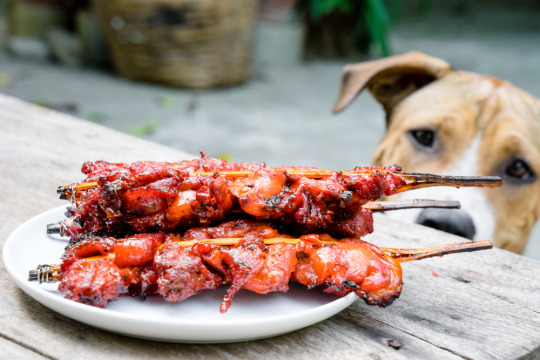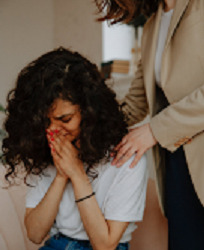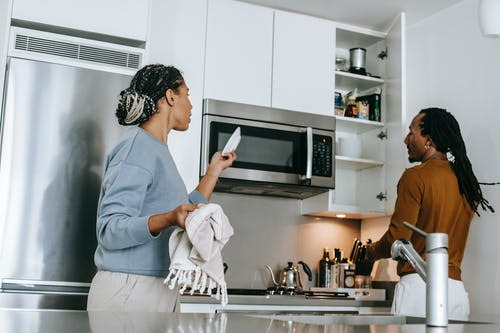#Tips for preventing common GI problems
Explore tagged Tumblr posts
Text

Discover 5 lifestyle changes to prevent gastrointestinal disorders in 2025. Improve gut health with expert tips for a healthier digestive system.
Do Read: https://www.healixhospitals.com/blogs/5-lifestyle-changes-to-prevent-gastrointestinal-disorders-in-2025
#Prevent gastrointestinal disorders#Lifestyle changes for digestive health#Gut health tips 2025#Healthy habits for digestive system#Diet for preventing GI disorders#Ways to improve digestion#Maintain gut health naturally#Foods for a healthy digestive system#Reduce risk of gastrointestinal diseases#Importance of hydration for digestion#Exercise and gut health connection#Avoiding stress for better digestion#Balanced diet for optimal digestion#Tips for preventing common GI problems
2 notes
·
View notes
Text
A Beginner’s Guide to Starting Brazilian Jiu-Jitsu
Brazilian Jiu-Jitsu (BJJ) is a dynamic martial art that focuses on grappling and ground fighting. Known for its emphasis on technique over strength, it’s an excellent choice for individuals of all ages, from young beginners to adults. Whether you’re interested in youth martial arts classes, kids’ self-defense training, or simply learning a new skill, this guide will provide you with the tips and gear essentials to start your BJJ journey.

Understanding Brazilian Jiu-Jitsu
What does BJJ mean:BJJ stands for Brazilian Jiu-Jitsu, a martial art that was derived from Judo and further developed in Brazil. An emphasis on controlling and submitting opponents through joint locks and chokeholds. Because BJJ relies on technique and strategy, it has become a common inclusion in many children’s self-defense classes and junior BJJ classes.
In fact, many youth martial arts classes include Brazilian Jiu Jitsu (BJJ) in order to help children learn self-discipline, confidence, and problem-solving capabilities. As a rookie, if you understand the philosophy at the heart of the art — that ability, not raw force, is key — it can help ease your entry into this thrilling realm.
Tips for Beginners
Brazilian Jiu-Jitsu can seem intimidating to begin, but with these tips, we hope to ease the way:
Start with a Positive Mindset
So, come in with a mind that is open and a will to progress in each class. You’re allowed to feel overwhelmed during your initial foray into this new system, but the most important factor is perseverance; the more you practice, the easier it’ll get.
Focus on the Basics
Avoid the temptation to learn advanced techniques. A strong base is made of consistently winning the most fundamental exchanges, like escapes, sweeps, and basic submissions.
Ask Questions
This is where coaches and senior students come to play. If you’re uncertain about a specific technique, be brave enough to ask.
Practice Patience
Progress in BJJ takes time. Even note the little wins like figuring out a certain move or getting out of a tough position.
Consistency is Key
In order to improve, it is important that you attend regularly. And aim for two classes a week so you build muscle memory and can be as great as you were before!
Gear Essentials for Beginners
Having the proper equipment will help guarantee safety and comfort throughout training. Here’s what you will need to begin:
Gi (Kimono)
The gi is the traditional uniform of Brazilian Jiu-Jitsu. Find a light-weight, durable gi designed for BJJ. Make sure it’s fitted, but free to move.
Rash Guard
Tops: While not required, a rash guard slipped under your gi can help prevent mat burn and keep sweat away from your skin.
BJJ Belt
A beginner wears a white belt. As you advance and gain higher levels of skill and knowledge, you will earn belts.
Mouthguard
Especially during sparring, you want to preserve your teeth. Opt for a durable, custom-fitting mouthguard.
Optional Gear
No-Gi Gear: If your academy does no-gi BJJ, you will need athletic shorts and a compression top.
Knee Pads — Helps prevent joint soreness in grappling.
Water Bottle — Hydration is vital during hard training.
Before enrolling kids into junior BJJ lessons, or youth grappling classes, make sure their gear is properly fitted and meets the safety standards.
Frequently Asked Questions and How to Solve Them
If you’re a beginner at BJJ, you’ll come across these problems. Here’s how to tackle them:
Feeling Overwhelmed
Solution: Focus on the class on one or two techniques and work on them at open mat.
Physical Fatigue
Solution: Start with short workouts and gradually build endurance. Mix in some light cardio exercise with your training.
Fear of Sparring (Rolling)
Solution: View sparring as information gathering. Go slowly and pay more attention to using techniques than to “winning.”
Plateaus in Progress
Solution: Accept that plateaus are a normal part of the process. You are up to October 2023, ensure you usually to new techniques and request feedback from mentors.
Injuries
Solution: Pay attention to your body, use good form, and listen to your body for rest and recovery. Many kids’ self-defense programs incorporate lessons on safe grappling techniques to avoid injury.
Finding the Right Academy
Thus the next step you have to take in your jiu jitsu journey is to choose the right academy. Here’s what to look for:
Qualified Instructors
A good teacher is knowledgeable, patient, and relatable. They must have experience with teaching beginners and nurturing a positive atmosphere.
Beginner-Friendly Classes
Now, search for academies that provide dedicated classes for beginners; youth martial arts classes, children’s Brazilian Jiu-Jitsu programs, etc.
Community and Atmosphere
The academy ought to be a warm and inclusive place. If the training environment is positive, learning becomes fun.
Trial Classes
Most academies provide a free or discounted class to try out. Make use of these to determine whether it’s a good fit for you or your child.
Conclusion
In this article, I will help you with some beginner tips on starting Brazilian Jiu-Jitsu. By learning the basics, investing in good equipment, and sticking to it, you will grow in confidence, fitness and skills that will transfer off the mat. Youth Grappling classes or junior BJJ lessons offer a great introduction for young beginners.
Whether studying Brazilian Jiu-Jitsu for self-improvement or learning and training as a family, enjoy the journey and take pride in each new accomplishment. Embrace the art and allow it to transform you — one roll at a time.
1 note
·
View note
Text
How to Properly Maintain and Troubleshoot Your Cashew Processing Machine
Cashew processing is a meticulous task that requires precision and efficiency. A well-maintained cashew processing machine ensures smooth operations, reduces downtime, and enhances productivity. In this guide, we will explore essential maintenance tips and troubleshooting techniques to keep your cashew processing unit running at optimal performance.

Regular Maintenance of Cashew Processing Machine
Proper maintenance of your cashew processing machine not only extends its lifespan but also ensures consistent output quality. Here are some key maintenance practices:
Routine Cleaning:
Remove residual cashew shells, dust, and debris from the machine after each processing cycle.
Use compressed air or soft brushes to clean hard-to-reach areas.
Lubrication of Moving Parts:
Regularly apply lubricants to bearings, chains, and gears to prevent friction and wear.
Use manufacturer-recommended oils and greases for optimal performance.
Inspection and Replacement of Worn-Out Parts:
Check cutting blades, sieves, and rollers for signs of wear and tear.
Replace damaged or dull blades to maintain precision in cashew nut cutting and shelling.
Calibration and Alignment:
Periodically calibrate the machine settings to ensure accuracy in shelling, peeling, and grading.
Align belts and conveyor systems to prevent jamming and uneven processing.
Electrical and Safety Checks:
Inspect electrical connections for loose wiring and short circuits.
Ensure that emergency stop buttons and safety guards are functioning properly.
Troubleshooting Common Issues in Cashew Processing Machines
Even with regular maintenance, issues may arise in your cashew processing machine. Here’s how to troubleshoot some common problems:
Machine Not Starting:
Check the power supply and ensure that the main switch is turned on.
Inspect fuses and circuit breakers for any faults.
Low Efficiency in Shelling or Peeling:
Adjust blade sharpness and alignment for better cutting precision.
Ensure cashews are properly preconditioned (steamed and dried) before processing.
Unusual Noises During Operation:
Lubricate moving parts and check for loose bolts or components.
Inspect bearings and rollers for signs of damage.
Frequent Jamming or Blockage:
Clear any clogged cashew shells or kernels from the processing chamber.
Check conveyor belts and feeding mechanisms for proper movement.
Overheating of Machine:
Ensure ventilation is adequate and clean cooling vents regularly.
Avoid overloading the machine beyond its capacity.
Choosing the Right Cashew Processing Machine Manufacturer
Selecting a high-quality machine from a reputable cashew processing machine manufacturer ensures reliability and efficiency. When looking for cashew processing machine manufacturers in India, consider factors such as:
The reputation of the manufacturer in the market.
Availability of spare parts and after-sales support.
Customization options to suit your processing unit’s requirements.
Conclusion
Proper maintenance and timely troubleshooting of your cashew processing machine can significantly enhance its efficiency and lifespan. Investing in high-quality machinery from a trusted cashew processing machine manufacturer will further ensure smooth and profitable operations. If you’re looking for reliable cashew machinery manufacturers, check out GI Agro Technologies for innovative and efficient solutions.
By following these guidelines, you can optimize the performance of your cashew processing unit and maximize productivity while minimizing downtime.
#CashewProcessingMachine#CashewProcessingMachineprice#cashewprocessingunit#cashewmachinerymanufacturer#cashewprocessingmachinemanufacturersinIndia#CashewProcessingMachinemanufacturer
0 notes
Text
Top Gastroenterologists in Noida for Expert Care
Digestive health is a cornerstone of overall well-being, and when issues arise, seeking expert care becomes essential. For residents of Noida, finding a qualified gastroenterologist in Noida ensures timely diagnosis and effective treatment of gastrointestinal (GI) disorders. Whether you’re dealing with chronic stomach pain, acid reflux, or complex liver diseases, a specialized gastro doctor in Noida can provide the right care.
This article explores the role of gastroenterologists, common conditions they treat, and how to choose the best healthcare professional for your needs.
Understanding Gastroenterology
Gastroenterology is a branch of medicine that focuses on the digestive system, including the stomach, intestines, liver, pancreas, and related organs. A gastroenterologist in Noida is a specialist trained to diagnose, manage, and treat conditions affecting these organs.
Common Conditions Treated by a Gastroenterologist
Acid reflux and GERD (Gastroesophageal Reflux Disease)
Irritable Bowel Syndrome (IBS)
Chronic constipation or diarrhea
Peptic ulcers
Inflammatory Bowel Disease (IBD), including Crohn's disease and ulcerative colitis
Liver diseases such as hepatitis and fatty liver disease
Pancreatitis
Colon polyps and colorectal cancer
Why Consult a Gastro Doctor in Noida?
Digestive health problems often have overlapping symptoms, making self-diagnosis challenging. Consulting a gastro doctor in Noida ensures that you receive an accurate diagnosis and appropriate treatment.
Benefits of Seeing a Specialist
Expert Diagnosis: A gastroenterologist uses advanced tools such as endoscopy, colonoscopy, and imaging studies to identify the root cause of symptoms.
Targeted Treatment: Gastro doctors provide tailored treatment plans based on individual needs, ensuring effective relief and management.
Preventive Care: Early detection of issues like colon polyps can prevent the development of serious conditions like colorectal cancer.
Comprehensive Management: From lifestyle advice to advanced medical interventions, a gastroenterologist in Noida offers holistic care.
Services Offered by Gastroenterologists in Noida
The healthcare infrastructure in Noida boasts cutting-edge facilities, enabling specialists to provide world-class care. Some common services offered by gastro doctors in Noida include:
1. Diagnostic Procedures
Endoscopy: A minimally invasive procedure to examine the esophagus, stomach, and upper intestines.
Colonoscopy: Used to inspect the colon and rectum for abnormalities.
Ultrasound and Imaging: For a detailed evaluation of the liver, gallbladder, and pancreas.
2. Medical Management
Prescription medications for conditions such as acid reflux, IBS, or infections.
Nutritional counseling to support digestive health.
3. Surgical Interventions
In cases of severe conditions like gallstones or colon cancer, gastroenterologists work alongside surgeons to perform necessary procedures.
Finding the Right Gastroenterologist in Noida
Selecting the best gastro in Noida involves careful consideration. Here are some tips to help you make an informed choice:
1. Check Qualifications and Experience
Look for a doctor with specialized training in gastroenterology and substantial experience in treating a variety of conditions.
2. Evaluate Facilities
Choose a gastroenterologist associated with clinics or hospitals equipped with modern diagnostic tools and infrastructure.
3. Read Patient Reviews
Online reviews and testimonials provide insights into patient experiences, helping you gauge the quality of care offered by the specialist.
4. Accessibility and Convenience
Ensure that the clinic or hospital is easily accessible and that the doctor is available for follow-ups as needed.
Importance of Timely Treatment
Ignoring digestive health issues can lead to complications such as malnutrition, chronic pain, or severe diseases. Consulting a gastroenterologist in Noida ensures early diagnosis and treatment, which are vital for preventing long-term health problems.
Preparing for Your Visit
Before your appointment with a gastro doctor in Noida, consider the following steps to ensure a productive consultation:
Prepare a detailed account of your symptoms, including their duration and triggers.
List any medications, supplements, or dietary habits that might impact your condition.
Note down questions about diagnosis, treatment options, and lifestyle changes to discuss with the doctor.
This preparation allows the specialist to provide a thorough evaluation and create a personalized treatment plan.
Conclusion
Maintaining good digestive health is essential for overall well-being, and consulting a gastroenterologist in Noida is the first step toward addressing any concerns. From routine check-ups to advanced treatments, the gastro doctors in Noida provide comprehensive care for a range of conditions.With their expertise, state-of-the-art diagnostic tools, and patient-focused approach, you can confidently manage your digestive health and lead a healthier life. Prioritize your well-being by seeking professional care from the best gastro in Noida today.
0 notes
Text
Post-Surgery Diet and Care: What Gastro Surgeon Recommend for Optimal Recovery

Recovering from surgery requires more than rest; it requires the right care and a balanced diet to support your body’s healing process. A gastro surgeon emphasises the importance of post-surgery nutrition and care to ensure a smooth, quick recovery and to avoid complications. The foods you eat, proper wound care, and gradual physical activity can significantly affect how fast you regain your strength. In this article, we’ll explore the dietary recommendations and essential care tips a gastro surgeon suggests for optimal post-surgery recovery.
What to expect after gastrointestinal surgery
Hospital stay and initial recovery
The days of stay in the hospital might vary from a few days to several weeks, depending upon the nature and complexity of the surgery. Following surgery, you will be attentively examined in the recovery room as important blood pressure, oxygen saturation, and heart rate are continuously checked. Following GI surgery, discomfort is normal; therefore, managing pain will be a top concern, with medication given as required. You can start with a liquid diet or with eating and drinking restrictions. As your digestive system works properly, you will slowly move on to solid meals.
Common post-surgery symptoms
It’s normal to have pain and discomfort around the surgery site, so it’s important to take any recommended painkillers and let a gastro doctor know if you experience any unusual or severe pain. There are drugs to help control nausea and vomiting, which are frequent and temporary symptoms. It’s natural to feel weak and sleepy as your body heals. Additionally, you can have irregular bowel motions, such as constipation or diarrhea. These are transient but need to be watched out for.
Incision care
Follow a gastro doctor’s advice for cleaning and wound care to prevent infection. Keep an eye out for any symptoms of infection, such as redness, swelling, or discharge from the incision site, and inform a gastro surgeon in Ahmedabad immediately if you see any of these. To maintain a clean and dry wound site, change dressings as directed by a gastro surgeon.
Physical activity
It’s advised to walk slowly to improve circulation and avoid issues like blood clots. Short walks at home or around the hospital might be helpful. However, till a gastro doctor gives the all-clear, stay away from hard lifting, strenuous activities, and bending.
Follow-up sessions
Keep track of your progress and address any issues by attending all planned follow-up sessions. A gastro surgeon in Ahmedabad will assess the incision site, general healing, and any lingering symptoms to ensure your recovery is proceeding as planned and that any problems are immediately resolved.
Tips for a smooth recovery
Follow post-surgery instructions
Pay close attention to a gastro surgeon‘s post-surgery care instructions and follow his directions. It is important to take painkillers as prescribed and complete the entire course of antibiotics given by a gastro surgeon in Ahmedabad.
Manage pain effectively
Take your prescription drugs as directed; however, if your pain is not controlled enough, don’t be afraid to ask for changes. Additionally, to assist in controlling pain and improving comfort throughout recovery, you could always try strategies like deep breathing exercises and cold packs, but only after enquiring from a gastro surgeon.
Preventing complications
Monitor for infection symptoms and inform a gastro surgeon immediately if you have concerns. Steer clear of alcohol and tobacco since they might hinder healing and raise the possibility of problems. Keep yourself as transferable as possible to avoid blood clots, and wear compression stockings if a gastro doctor prescribes.
Physical and emotional well-being
Take small steps towards healing, then progressively raise your level of exercise. Seek emotional support from friends, family, or a therapist to help deal with the stress and worry that comes with the upcoming surgery and recuperation. To help with the healing process, make sure you receive lots of relaxation and good-quality sleep.
Dietary adjustments
Begin with clear liquids, progress to soft foods, and then progressively add solid meals as taken. Stay hydrated by consuming lots of liquids, particularly if you’re experiencing diarrhea. Consuming a nutritious, well-balanced diet of fruits, vegetables, whole grains, lean proteins, and other nutrients promotes healing and general health. A healthy diet plays a very important role in managing gastrointestinal disorders.
Monitor symptoms
Discuss the symptoms, pain threshold, and any worries during follow-up appointments with a gastro surgeon. You may also keep a recovery journal. When you experience extreme pain, continuous vomiting, a high temperature, trouble breathing, or any other troubling symptoms, know when to get help.
Long-term lifestyle changes
To support long-term digestive health, maintain a healthy, balanced diet. After you’ve fully recovered, make regular exercise a part of your routine to help your general health. As a gastro doctor advises, keep up with routine medical check-ups and screenings to monitor and maintain your post-surgery health.
Summary:
After gastrointestinal surgery, a smooth recovery requires proper wound care, gradual physical activity, and a nutrient-rich diet. Pain management, incision care, and regular follow-up appointments with a gastro surgeon are essential to avoid complications. Starting with a liquid diet and progressing to solid foods supports digestive healing, while gentle movement helps prevent blood clots. Emotional well-being is equally important, and a balanced, healthy lifestyle is key to long-term digestive health post-surgery. Always follow the medical advice of a gastro doctor for optimal recovery.
0 notes
Text
Discover the Best Gastroenterologist Care in Madurai: Comprehensive Guide to Digestive Health
Madurai, a city known for its rich cultural heritage, is also becoming a hub for advanced medical care. Among the many specialties, gastroenterology is a critical field that has seen significant advancements. With the increasing prevalence of digestive disorders, the need for specialized care has never been greater. This blog will guide you through everything you need to know about finding the best gastroenterologist in Madurai, particularly at Preethi Hospitals, a leading healthcare provider in the region.
Understanding Gastroenterology: What Does a Gastroenterologist Do?
Gastroenterology is the branch of medicine focused on the digestive system and its disorders. A gastroenterologist is a specialist who diagnoses and treats conditions affecting the gastrointestinal (GI) tract, including the stomach, intestines, liver, pancreas, and esophagus. Common issues that a gastroenterologist treats include acid reflux, irritable bowel syndrome (IBS), Crohn’s disease, and liver cirrhosis.
Why You Might Need a Gastroenterologist
Digestive health is crucial for overall well-being. When something goes wrong in your digestive system, it can significantly affect your quality of life. Here are some reasons why you might need to see a gastroenterologist:
Persistent Heartburn or Acid Reflux: If you experience heartburn more than twice a week, it could be a sign of gastroesophageal reflux disease (GERD), which requires specialized care.
Unexplained Abdominal Pain: Chronic or severe abdominal pain can indicate various issues, from ulcers to gallstones, which need expert evaluation.
Digestive Disorders: Conditions like IBS, Crohn's disease, and ulcerative colitis require ongoing management from a specialist.
Liver Problems: Symptoms like jaundice, unexplained weight loss, or fatigue could be related to liver disease, which a gastroenterologist can diagnose and treat.
The Role of Preethi Hospitals in Gastroenterology Care in Madurai
Preethi Hospitals, Madurai, has established itself as a leading healthcare institution, offering top-notch gastroenterology services. The hospital is equipped with advanced diagnostic and treatment facilities, ensuring that patients receive comprehensive care for their digestive health.
Why Choose Preethi Hospitals for Gastroenterology?
State-of-the-Art Facilities: Preethi Hospitals is equipped with the latest technology in endoscopy, colonoscopy, and imaging techniques, enabling precise diagnosis and effective treatment.
Holistic Approach to Care: The hospital's gastroenterology department focuses on a patient-centered approach, offering personalized treatment plans tailored to individual needs.
Multidisciplinary Team: At Preethi Hospitals, a team of experienced gastroenterologists, surgeons, dietitians, and other healthcare professionals work together to provide comprehensive care.
Focus on Preventive Care: Understanding the importance of early detection, Preethi Hospitals emphasizes preventive screenings and health check-ups, particularly for high-risk individuals.
Common Gastrointestinal Conditions Treated at Preethi Hospitals
Here’s a look at some of the common conditions managed by the gastroenterology team at Preethi Hospitals:
GERD and Acid Reflux: Managing and treating chronic acid reflux to prevent complications like Barrett's esophagus.
Irritable Bowel Syndrome (IBS): Offering personalized treatment plans that include dietary advice, medications, and stress management.
Liver Diseases: From fatty liver to hepatitis, the hospital provides comprehensive care, including liver function tests, biopsies, and treatments.
Pancreatic Disorders: Diagnosis and management of conditions like pancreatitis and pancreatic cancer, which require specialized care.
Inflammatory Bowel Disease (IBD): Treating conditions like Crohn’s disease and ulcerative colitis, focusing on reducing inflammation and maintaining remission.
Tips for Maintaining Digestive Health
While it's crucial to seek professional help when needed, maintaining good digestive health is equally important. Here are some tips:
Eat a Balanced Diet: Focus on high-fiber foods, lean proteins, and healthy fats. Avoid excessive processed foods and sugar.
Stay Hydrated: Drinking plenty of water aids digestion and helps prevent constipation.
Exercise Regularly: Physical activity promotes healthy digestion and can prevent digestive issues like constipation.
Manage Stress: Stress can worsen conditions like IBS and GERD. Incorporate stress management techniques like yoga, meditation, or deep breathing exercises into your routine.
Conclusion: Your Digestive Health Matters
When it comes to digestive health, timely intervention is key. If you're experiencing any gastrointestinal symptoms, consulting a gastroenterologist is the first step toward effective treatment. Preethi Hospitals in Madurai stands out as a trusted provider, offering advanced care with a patient-first approach. Whether you're dealing with a chronic condition or seeking preventive care, the gastroenterology team at Preethi Hospitals is equipped to meet your needs, ensuring you maintain optimal digestive health.

0 notes
Text
How Diabetes Affects Cancer Risk: A Comprehensive Guide
This article is originally published on Freedom from Diabetes website, available here. Uncontrolled diabetes lead to several health complications. As the body struggles to deal with the high blood sugar levels (BSL), almost every organ from the skin to the bones, nervous system to the digestive system, is negatively impacted. Over time, this can result in a variety of health issues including heart attack, stroke, kidney damage, vision problems, Alzheimer’s disease, and even cancer!

Yes, statistics show that there is a definite link between diabetes and cancer, although no validated scientific study exists as yet, there is little doubt that people with diabetes are at a higher risk of some cancers. Diabetes doubles the risk of some cancers: liver, pancreas colorectal, and breast, for instance.
Diabetes and cancer do have some common risk factors, such as age, bad diet, no physical activity and high-stress levels. These are also prime risk factors for inflammation, which is one of the key triggers for insulin resistance and increased cancer risk.
Cancer Prevention Strategies
1.Maintain your sugar level- Diabetics should try to keep their blood sugar level low. It will lower the risk of cancer.
2.Health diet- Diabetics should have a diet , including vegetable, fruits with low GI, rich in antioxidants, anti-inflammatory agents, vitamins, and minerals.
Regular exercise- It’s recommended that diabetics get a minimum of 30 minutes of exercise. Including cardiovascular movements, resistance training, and flexibility & balance sessions.
Lower your stress- Stress is another big problem for insulin resistance. Try be stress free. Try for meditation. It will helpful for you.
Take a doctor's advice - It is essential that everybody, especially older populations, get their health checks done regularly. This is the best way to stay on top of any incipient health issues.
Do Diabetes Drugs Increase Cancer Risk?
There is no definitive proof that diabetes treatments increase the risk of contracting cancer. While some drugs, such as metformin reduce the risks of cancer, others might increase the risk factor. But this has by no means been substantiated.
So do not let this affect your diabetes treatment. If you’re not clear of the risks, please talk to your doctor. What is clear though is that lowering your BSL will help reduce your risk of health complications associated with diabetes, and, thus, cancer.
By following these treatment and prevention tips, you can manage diabetes and cancer effectively. To read more about this, please visit our Article. Also please connect with me on my website, Facebook page, and YouTube if you want to stay in touch or give me any feedback!
#Diabetes and Cancer Risk#Diabetes Cancer Connection#Managing Diabetes and Cancer Risk#Diabetes Cancer Prevention#Understanding Diabetes and Cancer#Diabetes Impact on Cancer#Diabetes and Cancer Awareness#Reducing Cancer Risk with Diabetes#Diabetes and Cancer Insights#Diabetes and Cancer Health Risks
0 notes
Text
Mastering Stress-Free Land Surveying: 8 Essential Tips for Success
People are easily amazed by everything they see, especially when it comes to tall buildings and unique infrastructure. However, before all those projects were built, crucial and various construction and development processes were done. And if there is one part of the process that everyone should know, it is land surveying. Professional surveyors Sydney are the ones who do the job, guaranteeing careful planning and preparation. If you are one of them, here are some tips you may find useful to have a stress-free and successful land surveying:
Plan Ahead
The first thing you need to do is to plan. Before going to the site, ensure that you have everything planned out for you and your team. Give everyone something to do and hold a little meeting, so everyone knows their tasks once they get to the field. Knowing ahead of time what to do can reduce your stress and make your job easier to handle.
Check Your Equipment
After planning, you must check the tools and equipment you will bring. Ensure that they are in proper and good working condition. Not testing them before the job can cause problems once you are already in the field. Here are the tools and equipment you should have:
Total Station - this tool is used for measuring angles and distances.
Theodolite - it measures angles in horizontal and vertical planes.
GPS Receiver - determine the position on the surface of the Earth. The complete name is Global Positioning System.
Level - it is to check the height differences.
Measuring Tape - the most basic of all, used to manually measure distances.
Once you are done checking the tools and equipment, proceed with packing them. Check the bag before leaving to see if everything you need is there. Creating a list is better to know what you should bring and mark them well if they are complete.
Stay Organised
Organising things might make you think of spending an entire day doing it, but it is not supposed to be that way. There are various techniques for keeping things organised, like putting all similar things together in one place. Do this with your equipment and supplies to avoid wasting time looking for your tools. If you need them, you know where to find them easily.
Weather Check
Before going to the field, check for weather forecasts and do a weather check. If there are adverse weather conditions but you need to get the job done, ensure you have tools for those. Do not forget to bring raincoats and umbrellas to lessen the stress caused by the weather.
Safety First
Whatever service you are offering, safety must be a priority. No matter how hard or easy the job is, always have the necessary safety gear and follow safety procedures to prevent accidents from happening. The most common ones you will see are the following:
Reflective Set
Hard Hat
Safety Glasses
Steel-Toed Boots
Gloves
Ear Protection
Sun Protection
First Aid Kit
Team Communication
Working with a team might not be for everyone, but land surveyors need to be in one to get the job done easier. To lessen the stress of land surveying, communicating with the entire team is necessary. With this, you can avoid misunderstandings and mistakes. If there are things you do not understand, your teammates are there to help.
Use Technology Wisely
Technology keeps improving many things in the lives of people, including land surveyors. You will see various land surveying technologies, like GPS and GIS. Taking advantage of these tools can make the job easier and the entire process easy. You will also notice the minimal to zero errors.
Take Breaks
No matter how challenging the job is, do not forget to take a break. Give yourself some time to rest and refresh your mind and body. Exhausting yourself will not do you any good, and might stress you out more than before. Land surveying can be physically demanding, so recharge and do not be so hard on yourself.
Land surveying is not an easy job, considering the things surveyors need to know and do. But with your knowledge and correct strategies, you can get the job done stress-free. Let you and your team experience the same using these tips, and see the positive changes and results. Good luck!
0 notes
Text
5 Ways to Keep Your Pet Safe During A Cookout

Summertime and cookouts often go hand-in-hand. From barbecued ribs to potato salad and sweet treats, many family gatherings revolve around this warm weather tradition. Our pets are family, and most pet owners want to include their pets in family gatherings and activities. Many pets enjoy the added attention from visiting family members, and they likely will drool in anticipation of a delicious piece of steak or burger that may accidentally fall from the grill.
However, grilling and cookout activities can be dangerous to pets, and lead to burns, skin irritations, choking, and sometimes deadly gastrointestinal (GI) problems. We want to ensure your pets are safe during summertime cookouts, so follow these five cooking safety tips.
#1: Keep your pet away from the grill while cooking
The sizzling aroma of fresh meats and veggies on the grill can be enticing not only to people, but also to pets. However, an active grill holds many pet hazards. Pets should be kept more than three feet from grills, because the dangerous grilling flames and heat can lead to burned paws and singed whiskers on curious noses. Therefore, never leave an active grill unattended.
Additionally, ensure you prevent pets from accessing the fat and meat trimmings that build up and become trapped below the grill. Pets lack the proper enzymes to digest rich, fatty foods, and ingestion can result in GI distress, inflammation, or potentially deadly pancreatitis.
#2: Never leave grilling accessories in a pet-accessible area
Many tools are required to ensure a successful grilling venture. However, these tools can injure pets. Ensure you keep all grilling tools, such as skewers and cooking tongs, out of paws’ reach to prevent traumatic injuries from sharp edges, or burned tongues in pets trying to sample your recipes. Additionally, store charcoal bags in a pet-safe location to prevent ingestion. Although charcoal is not toxic to pets, ingestion can still lead to GI problems, choking, or blockages that may require surgery in some cases.
Store all plastic ware and storage containers in a non-pet-accessible location, to prevent a dangerous ingestion. Your pet also may be tempted to lick residual food particles off the foil, and accidentally ingest some of the foil, which can lead to GI blockages. Diagnosing this type of blockage can be challenging because the foil is not visible on an X-ray.

#3: Avoid sharing your plate with your pet
We understand that your pet’s longing eyes and drooling muzzle can be impossible to ignore while you prepare your barbecue feast. However, many popular grilling foods, spices, and side dishes are dangerous to pets, and can lead to GI inflammation, blockages that may require surgery, or potentially deadly toxicities. Never hesitate to call your if you are concerned that your pet has ingested a toxic food, and always keep the ASPCA Animal Poison Control number readily available.
Common cookout foods dangerous to pets include:
Bones
Raw meats
Hot dogs
Garlic, onions, or other members of the Allium family
Ketchup
Corn cobs
Salty snacks, including pretzels, chips, peanuts, and popcorn
Desserts, or any chocolate
Alcoholic beverages or desserts with alcohol
Sugar free foods, such as jello
#4: Use caution with bug repellent and sunscreen around pets
The rising temperatures bring an abundance of biting insects, including mosquitoes and fleas, which can carry infectious diseases and parasites dangerous to pets. Bug repellent and citronella candles are as much summer staples as swimsuits and cookouts. However, never use human-intended insecticides on your pet, and ensure your pet is a safe distance away when you apply bug spray to yourself or in the yard. Most commercial repellents contain ingredients that are dangerous to pets.
Veterinary-prescribed flea, tick, and heartworm prevention products are the safest, most effective way to protect your pet from hitchhiking pests. Additionally, excess ultraviolet exposure can lead to sunburn, or skin cancer, in some breeds. Never apply sunscreen directly on your pet without veterinary advice. Many human sunscreens contain ingredients such as zinc oxide, or para-aminobenzoic acid, that are toxic to pets.
#5: Ensure your pet can be identified
You can easily become distracted during the chaos of family or friends arriving to share the fruits of your barbecue labor. Ensure that your pet is microchipped, and wearing a secondary identification such as an embroidered collar or tag. Curious pets may accidentally sneak out the front door during the excitement of arriving guests. A microchip is the safest, most effective, and only permanent means of identifying your pet, should they go on an unplanned adventure. Always ensure your pet’s microchip registration is kept up to date with your current contact information.
#summer barbecue#dog and barbecue#dog safety#bbq with dog#bbq#summer dog safety#bbq dog safety#barbecue dog
6 notes
·
View notes
Text
CONTROL YOUR ANGER
Ms. Aanam Verma | Head of Department | Asst. Professor Biological Sciences | CPSM College of Education | Gurugram
HOW TO CONTROL YOUR ANGER | ANGER MANAGEMENT STRATEGIES | TIPS TO OVERCOME ANGER

Most people get upset simply because they don't know what to do when they experience anger in their daily life. Sometimes aggressive behaviour may get their needs met in the short-term, but there are long term consequences. Your words might cause lasting damage to the relationship or even lead to its demise. So here by, I will like to share some simple tips how to tackle the ghost of ANGER.
When calm, express the anger

As soon as your thoughts are clear, express your frustration in an assertive but non-confrontational way. You must state your concern and needs in a direct and clear way, without hurting others or trying to control them.
Physical Activities

Physical activity like yoga, stretching, aerobic exercises reduces stress which is the cause root of your anger. Neck rolls and Shoulder rolls are good examples of nonstrenuous yoga like movements, which controls your body and harness your emotions. If you feel your anger escalating, go for a brisk walk or run, or do some enjoyable physical activities like cycling, hit a few golf ball, playing your favourite game.
Relaxation Exercises

There are many relaxation exercises but the key is to find the one that works best for you. Breathing exercises and Progressive muscle relaxation are two common strategies for reducing tension. Your breathing becomes shallower and speeds up as you grow angry. Reverse that trend by taking slow, deep breath from your nose and exhaling out of your mouth for several moments. In Progressive muscle relaxation, try to tense and relax slowly your different muscle groups in your body, one at a time, along with slow deliberate breathe. Eg. Closing tightly & relaxing your fist along with breathe in & out respectively. You can use kids small smiley ball too. Stress balls are also available in the market. Relaxation exercises take practice. At first, you might feel as they are not effective, but with practice, they will.
Warning signs

Be alert & aware of the emerging signs of anger like fast heart beat, red & hot face, clenching of fist, unable to think properly etc., so that you can take control and prevent it to reach the boiling point.
Identify Triggers

Take stock of things that trigger your anger like traffic jams, sarcastic comments, messy room, work not at time etc. You must structure your day differently and prevent the triggers to take place.
Be aware of your feelings

Think critically what real emotions are lurking beneath your anger. Sometimes anger act as a mask to protect you from more painful emotions like embarrassment or disappointment. Acknowledging underlying right emotion can help you to get the root cause of problem. For an example, if someone cancels a plan on which you were so excited, chances are you rush in anger but underlying emotion is disappointment, so you can explain your feelings of disappointment instead of making the scene. Be honest with your feelings, then only you can resolve the issue. Responding in anger just push people away.
Keep your mouth shut

When you are provoked, you may speak rubbish, which will worse the situation rather than any positive result. So, in an argument tightly close your lips as they are pasted. This will help you to take time to collect your thoughts and respond in a mature way.
Repeat a mantra

When your temper flares, repeat a mantra or calming word or phrase, that will help you to calm down and refocus. Repeat that word again and again to yourself when you are upset. ‘Relax’, ‘take it easy’, ‘you will be o.k’ or ‘everything will be fine’ are good examples.
Picture a stop sign

The universal symbol to stop can help you calm down when you are angry. It’s a quick way to help you visualise the need to halt yourself, your actions and walk away from the moment. You can put any symbol on your back of your hand which will remind you to STOP & control your anger.
Find a creative channel

You can turn your anger into a tangible production. Consider digital creativity, painting, writing poetry or journal when you feel upset. What you can't say, perhaps you can write. Jot down what you are feeling and how you want to respond. Processing it through the written words can help you calm down and reassess the events, increases understanding and more possible solutions. Emotions are powerful muscles for creative individuals. Use yours to reduce anger.
Practice Imagination

Just step into a close room, close your eyes, and imagine yourself in a relaxing scene. Focus on the details of the imaginary scene. Colour of shedding leaves.... movement of water….brightness of the rising sun etc. This practice can give you calmness, peace, serenity and of course strength.
Keep a calm down kit

Make collection of objects which helps to engage all your senses. When you can see, hear, smell and touch the calming things you can change your emotional state. So, prepare a calm down kit which may include scented hand lotion, an image of serene landscape or any relaxing scene, Audio- Video spiritual passage or quotes, a few pieces of your favourite candy. Just include all those things that you know will help you to remain calm. You can create a Portable calm down kit that you can take anywhere. For example, calming music and images, guided meditation or instructions for breathing exercises etc. to be stored in a special folder on your smartphone. Keep your bag loaded with hand lotion, perfumed wipes & candies.
Change the focus

The best way to calm down is to change the focus immediately on something else. It’s better to distract yourself with an activity. Do something that requires your focus and makes more challenging for negative thoughts to creep in. For an Example, organising the wardrobe, deep cleaning the kitchen, weeding the garden, sign a petition, write a note to an official etc. Pour your energy and emotions into something thats healthy and productive which keeps your mind occupied and won’t able to ruminate on the things upsetting you.
Listen Music

Let the music carry you away from your frustrated feelings. Put on your earbuds, move to the park or drive the car and listen your favourite music, humming & bopping your anger away.
Countdown

Feeling angry, countdown up to 10. If your anger touching the peak, start slow backward count. By the time you count, your heart rate becomes slow, and your anger subsides slowly.
Sharing with a friend

Instead of whirling in the episodes that made you angry, you must have a long talk with a friend who is trustful, understands you and your all perspectives and also help you to get rid of the problem.
Write a letter or Email

Write a letter or email expressing all the events, even minute emotions which made you angry. After that, delete it. This will help you to release the suppressed emotions and make you at ease.
Rehearse your response

Rehearse what & how you are going to say when the same type problem approaches you. This rehearsal period gives you chance to role play all the solutions coming to your mind.
Practice empathy

Fit in other persons shoes and see the situation from their angle. When you narrate a story according to their perspective, you may gain a new understanding and can overpower your anger. Think like a scientist, not a lawyer
Feel the anger but avoid action

In anger person loses judgement and problem solving skills which makes him rigid & blunt. Ambrose Bierce rightly said “speak when you are angry and you will make the best speech you will ever regret”. Anger drives us to aggress , confront, take revenge and retaliate. It’s better to go to bed angry, before sending angry email keep it for few days, just walk away when fight arises.
Self reflection

Some person are proud of their anger. Even they achieved nothing, they experience a warm inner glow of self satisfaction .They believe they have accomplished something tough, powerful and righteous. But that's not. One must see or hear himself in anger once in life. Tennis great Roger Federer who was a racket smashing brat in his junior years, was watching himself throwing tantrums on TV that put him off of it throughout the life.
Take care of yourself

Factors like alcohol, pain, fatigue, stress, sickness, unmet drives like hunger, thirst, lust, etc. act as a fuel to anger. Reduce these variables as much as possible. Take proper sleep, make routine timetable, take some time off, streamline your week, delegate, relax, and have nutrition rich diet.
Stick with ”I”statements

Criticizm or blame game will always increase tension. So, use ‘I’ statements while presenting the problem. Keep in mind to be specific and warm. Example say ‘I don’t feel good when you leave the table without keeping the plate in sink’ instead of saying ‘you never help in housework.
Take short breaks

Give self short breaks during stressful or overloaded days. A few moments of quiet time will help you feel better, focused and prepare you to handle what’s ahead without getting irritated or angry.
Work on solutions

Instead of focusing on what made you mad, work on resolving the issue at hand. Always remind yourself that anger won’t fix anything and might only make it worse.
Forgiveness

Learn to Forgive. If your anger overpower your positive side, you find yourself dipped in bitter & poisonous fluid. But by forgiving someone who made you upset will make both of you to learn from the situation and strengthen your relationship. If it finds hard to forgive the person who has done wrong to you then imagine to forgive him. This way your anger slip away.
Evaluation of anger

Analyse whether your anger is a friend or an enemy. If you see your right is being violated, you are suffering an unhealthy situation or emotionally abusive toxic relationship, then your anger can do justice. Here, you can change the situation rather than changing your emotional state. Anger gives you the strenghth & courage to take a stand and make the right change. Another case, if your anger is enemy, it will destroy your healthy relationships and make you upset. So, evaluate your anger is positive or negative for you.
Humor, the best medicine

Lightening the situation can diffuse the tension. Humor can give you insight that what’s making you angry or having any unrealistic expectations. Avoid sarcastic comments, it only hurt the feelings and also make situation worse. Diffuse your anger by looking for ways to laugh, whether playing with your kids, watching stand - up, or comedy movie.
Gratitude

End of the day, always be thankful to life, what positive things it has given you, even under hard situations. Just ignore the negative part and enrich more with gratitude for right things in your life. Anger will get no attention & will try to eliminate automatically from your life.
Know when to seek help

Learning to control anger is a big challenge. Seek help or consult a psychologist if your anger seems out of control, causes you to do more harmful things you regret.
Aanam Verma
#anger#anger mangement#anger management strategies#how to control anger#how to control your anger aanam verma tips to control your anger control your anger
10 notes
·
View notes
Text
A Comprehensive Guide To Anal Fissure: Symptoms, Causes & Treatment
When cut or tear occurs in the anal canal or lower rectum, the condition is referred to as Anal Fissure. The victim of this disorder experiences unbearable pain and irritation during bowel movement. It can be acute or severe. Generally, anal fissure remains acute till six weeks, but it becomes complicated and causes extreme discomfort after that. As it may also cause bleeding, some people also perceive it as hemorrhoid. However, in reality, these both are entirely different things. Hemorrhoids occur due to swelling in veins of the anus region.
Although an individual of any age can have an anal fissure, people aged 20 to 40 years are at high risk of this medical condition. In addition to this, the probability of occurring fissure decreases with age. According to studies, older adults become fewer victims of this disorder.
If the anal fissure is treated on time (means before six weeks), it is easy to get rid of it. However, if it’s too late, you need to go for laser treatment for fissure in Kolkata and other cities in the country. If you or your loved ones feel sharp pain or notice a small amount of blood during poo, it would be better to visit the renowned gastrointestinal specialist without wasting a minute. Let us dive into the major causes of Anal Fissure.
Chronic Constipation
The people you have chronic constipation are likely to develop anal fissure. If you also have problems passing the stool, it would be better to eat fibre rich foods and take the help of stool softeners.
Frequent Diarrhea
Another common cause of this medical condition is Diarrhea. The individuals who pass loose and watery stool frequently also become a victim of Anal Fissure.
Childbirth
Sometimes, normal child delivery also leads to fissures in the anus region.
Anal Sex
Couples who practice anal sex also fall prey to this health condition. This happens because the lower rectum is stretched during intercourse.
Insertion Of Foreign Objects
The insertion of medical equipment in the anus to diagnose various diseases also breaks the walls of the anal canal.
Read on to know early signs of Anal Fissure.
Symptoms Of Anus Fissure -:
The sharp and severe pain in the anal area during poo, followed by burning inflammation for several hours.
A little amount of blood outside the surface of the poo.
Bright red coloured blood on the toilet paper.
Significant cracks on the anal canal.
Itching & discomfort in the region around the anus.
Feels difficult to urinate or urinate frequently
How Is Anal Fissure Diagnosed?
The physician will ask you a few questions before visual inspection, such as the type of pain you experience, the density of stool, etc. Then they examine gently with a fingertip by parting your buttocks. They wear the glove & apply some lubricant on the finger part and insert it into the anus to identify abnormalities. If a GI surgeon finds something serious, they may recommend you get a specialist evaluation, in which they use an anesthetic to alleviate the pain.
Prevention Of Anal Fissure
You can consider the following tips to prevent the occurring of Anal Fissure
Always keep the anus and area around it dry.
Clean the anal region twice or thrice a day with mild soap and lukewarm water.
Devour a lot of fibre and drink plenty of water to overcome constipation.
Regular exercise and workout also help to reduce constipation.
Don’t keep babies in a single diaper for more than 4 hours.
Treat Diarrhea immediately.
Anal Fissure Treatment
The mild anal fissure can be treated with stool softeners, pain killers and ointments. However, severe fissures need surgical treatment. If fissures don’t heal or develop again & again, you should seek the GI specialist who provides the best laser fissure treatment. It is a painless surgical procedure to eliminate anal fissure. The success rate of this surgery is very high. As per reports, 9 out of 10 cases are successfully cured with laser surgery.
Originally Published At: https://www.healthcarebloggers.com/comprehensive-guide-anal-fissure/
#Laser surgery for fissure#Laser surgery for fissure in kolkata#laser treatment for fissure in kolkata
2 notes
·
View notes
Text
5 Lifestyle Changes to Prevent Gastrointestinal Disorders in 2025

In today’s fast-paced world, gastrointestinal disorders have become increasingly common, affecting millions globally. With stress, poor eating habits, and sedentary lifestyles taking a toll on our health, it’s no wonder that our digestive system struggles to keep up. However, the good news is that many gastrointestinal issues can be prevented through simple lifestyle changes for digestive health. In this article, we’ll discuss five effective ways to prevent gastrointestinal disorders in 2025, focusing on habits and routines that promote gut health and overall well-being.
At Healix Hospitals, we believe prevention is key, and empowering individuals with the knowledge to make informed decisions about their digestive health can lead to a better quality of life. Read on to learn how you can maintain gut health naturally and reduce your risk of gastrointestinal diseases.
1. Adopt a Balanced Diet for Optimal Digestion
Your diet plays a crucial role in how your digestive system functions. A balanced diet for optimal digestion is one of the most powerful tools to prevent gastrointestinal disorders. The foods you eat provide essential nutrients that your body needs and the right choices can help protect against digestive health issues such as acid reflux, irritable bowel syndrome (IBS), and inflammatory bowel disease (IBD).
Key Aspects of a Gut-Healthy Diet:
Fiber-Rich Foods: Foods high in fiber, such as fruits, vegetables, whole grains, and legumes, support healthy digestion by promoting regular bowel movements and preventing constipation.
Fermented Foods: Including foods like yogurt, kimchi, sauerkraut, and kefir in your diet can introduce beneficial bacteria (probiotics) to your gut, supporting a balanced microbiome.
Lean Proteins and Healthy Fats: Opt for lean protein sources like fish, chicken, and legumes, and healthy fats from sources like avocado, nuts, and olive oil. These foods are easier on the digestive system and can help maintain digestive balance.
Foods for a Healthy Digestive System:
To prevent gastrointestinal disorders, it's important to focus on nutrient-dense foods that nourish the digestive tract. Include the following in your diet:
Leafy greens like spinach, kale, and broccoli for their high fiber content.
Berries, which are rich in antioxidants and fiber.
Ginger and turmeric, are known for their anti-inflammatory properties and ability to soothe the stomach.
Coconut and olive oils, are gentle on the digestive tract and help absorb nutrients efficiently.
A healthy, well-balanced diet with these gut health tips 2025 can ensure a strong, resilient digestive system and help you reduce the risk of gastrointestinal diseases.
2. Exercise and Gut Health Connection
Physical activity does more than just keep you fit; it also plays an essential role in maintaining a healthy digestive system. Regular exercise helps promote healthy gut motility, meaning food moves through the intestines more effectively, reducing the chances of constipation and improving overall gut health.
How Exercise Benefits Digestion:
Increased Blood Flow: Increased Blood Flow: Exercise boosts blood circulation, allowing better nutrient absorption and helping the digestive organs work more efficiently.
Promotes Healthy Bowel Movements: Regular physical activity, such as walking, jogging, or yoga, can help regulate bowel movements and reduce bloating, which can prevent discomfort and digestive issues.
Stress Reduction: Exercise is also known to reduce stress levels, which can have a significant impact on digestive health. High stress can contribute to conditions like acid reflux and IBS.
Ways to Improve Digestion Through Exercise:
Aerobic activities such as brisk walking or cycling can stimulate the intestines, promoting regular digestion.
Yoga offers a great way to relieve stress while improving digestion through specific poses that massage the abdominal organs.
Strength training can also support digestive health by improving muscle tone and reducing bloating.
Making exercise a part of your routine is one of the best gut health tips for 2025, and it helps you maintain gut health naturally while reducing the risk of gastrointestinal disorders.
3. Avoiding Stress for Better Digestion
Stress is a common culprit behind many digestive problems. The gut-brain connection is a powerful link that can either help or hinder your digestive system. When you're stressed, your body enters a "fight-or-flight" mode, which diverts energy away from digestive functions, leading to problems like indigestion, acid reflux, and irritable bowel syndrome (IBS).
How Stress Affects Your Digestion:
Slowed Digestion: Stress can cause your digestive system to slow down, leading to issues like constipation and bloating.
Acid Reflux: Stress can increase acid production in the stomach, leading to heartburn and acid reflux.
Increased Inflammation: Stress contributes to inflammation in the digestive system, which can worsen conditions like IBD and gastritis.
Continue Reading: https://www.healixhospitals.com/blogs/5-lifestyle-changes-to-prevent-gastrointestinal-disorders-in-2025
#Prevent gastrointestinal disorders#Lifestyle changes for digestive health#Gut health tips 2025#Healthy habits for digestive system#Diet for preventing GI disorders#Ways to improve digestion#Maintain gut health naturally#Foods for a healthy digestive system#Reduce risk of gastrointestinal diseases#Importance of hydration for digestion#Exercise and gut health connection#Avoiding stress for better digestion#Balanced diet for optimal digestion#Tips for preventing common GI problems
1 note
·
View note
Text
At-home cold and flu treatments that your bladder won't hate (probably)
via Reddit:
Whether it’s the common cold, bronchitis, sinusitis or the flu, having IC can make managing congestion, coughing, runny noses and chills more complicated. Here are some ideas for handling the symptoms without making your bladder go into open revolt. (Usual disclaimers: not a doctor, this isn’t medical advice, if you’re sick see a doctor to make sure what you have is manageable on your own, all drugs have side effects so ask a doctor or pharmacist before trying something new.)
What do you do when you have a cold? Let us know in the comments!
THINGS TO AVOID
Decongestants with pseudoephedrine/phenylephrine: Pseudoephedrine is a stimulant and like all stimulant medications it can cause urgency/frequency even in otherwise healthy people. For ICers, that often translates to worse pain and voiding symptoms. Phenylephrine is also a stimulant, and it doesn’t work that well for congestion so that one is rarely worth the risk.
Cough drops or syrup with Vitamin C: Vitamin C makes urine more acidic and is one of the most common dietary flare triggers. It also doesn't do anything to prevent or treat the common cold so we're not missing out.
Medications with dyes: if you’re sensitive to color additives, watch out for pills with colored coatings. Lots of common medications are available without dyes, ask your pharmacist about how to get them.
Acidic syrups: some liquid cough and cold medicines are pretty acidic and can be bothersome even in small quantities.
ALTERNATIVES TO TRY
Netti pots/hot steamy showers: these methods get mucus moving and can help temporarily relieve pressure from head congestion.
Antihistamines: these often have a drying effect that is handy if you have a runny nose or post-nasal drip. Some cough and cold medications contain antihistamines, so if you use hydroxyzine/Benadryl/OTC daily allergy pills to manage your IC make sure to be attentive to ingredients so you don't overdose.
Herbal tea/hot water with honey: honey is a topical antiseptic and a lot of people find it soothing for sore or hoarse throats. If you can tolerate herbal tea that’s a comforting drink, but if you can’t honey water is still pretty tasty.
IC friendly juices: pear and blueberry juice are both safe for a lot of people and can be an easy way to get your blood sugar up if eating is uncomfortable. Cut them with 50% water to be extra-safe.
Salt water mouthwash: this is good for sore or hoarse throats, most people do it 2-3x/day while irritation lasts.
Honey throat lozenges: generally safer than fruit flavors.
Vicks VapoRub: this is a topical treatment for congestion which makes it bladder-sparing. Some people use peppermint oil instead but it can be irritating to skin so use with caution.
Humidifier: keeping the air moist can make you more comfortable if your nose or throat are irritated. Some people add things like eucalyptus to the humidifier or diffuser, which probably does nothing to help your cold but does smell nice. People with asthma should avoid additives since essential oils can be irritating to the respiratory tract.
NSAIDs: if you have aches, a sore throat or a fever and can tolerate things like Advil or Tylenol these can help you get temporary relief. Make sure you see a doctor if you have these symptoms to find out if you have the flu.
Drink plenty of water: being hydrated thins out mucus and helps your body keep it together while it fights off the invader. You don't need to go buck wild, just sip throughout the day.
Eat cold- and IC-friendly foods: chicken soup is pretty easy to adapt to the IC diet, as are a lot of comfort foods. Some pretty weak evidence suggests that garlic may help you fight colds, which is probably bullshit but many of us can tolerate it so why not eat some? Also that thing about avoiding dairy when you’re congested is a myth, so go for it if dairy is flare-calming for you.
Get extra rest: kinda sucks but the best thing for a cold or flu is rest and time. People with chronic pain often have lower energy at baseline so when we get sick it can really do a number on us. Getting as much rest as possible is really important. TIP: "rest" doesn’t have to mean "sleep", which can be impossible if you’re having IC symptoms plus a cold. Don't stress yourself out if you're not sleeping well! Rest can also mean taking a day off, laying down for a bit even if you don’t sleep, asking for help with daily chores to save energy (or just not doing them), or doing something relaxing like taking a bath or listening to music.
I CAN'T FUCKING TAKE IT I NEED ACTUAL MEDICINE
Do you, beau. Drinking extra water can help your bladder tolerate irritating ingredients, and popular flare relievers like Benadryl, AZO and baking soda can help you tolerate the side effects of stimulant drugs. Go to the doctor to see if there's any prescription drugs that might help you.
MY DOCTOR PRESCRIBED ANTIBIOTICS BUT WHAT IF IT'S VIRAL?
Taking a z-pack when you might have a viral infection is a tiny, minuscule, vanishingly small contribution to a problem (bacterial resistance) that is overwhelmingly driven by antibiotic use in the cattle industry and hospital procedures. Doing this once a year is not going to give you a multi-drug-resistant superbug. If you're concerned about the side effects of antibiotics on your GI or reproductive systems, discuss those risks with your doctor and they can advise you if antibiotic treatment is important or optional for your situation.
SHOULD I STAY HOME FROM WORK?
If your position in our late-stage capitalism hellscape allows you to do so, please stay home. Immunocompromised people everywhere will thank you (including ICers using cyclosporine!)
Good luck Northern hemisphere!
3 notes
·
View notes
Text
Disclaimer: Duelists within the anime severely lack in Spell-based Monster Removal, Spell/Trap Destruction, Effect Negation and Continuous Spell/Trap cards that prevent the opponent from performing certain actions since cards are notably more difficult to obtain and faith/morale play a bigger role than luck/deck-building with an abnormal Battle Phase fetish.
Therefore, this list ranking the strongest antagonists in Yu-Gi-Oh! Anime so far will sparsely discuss the flaws of each character's Deck. If you have any questions about my list or want my personal thoughts on anything Yu-Gi-Oh!, feel free to ask. I have nothing but time!
~~~~~~~~~~~~~~~~~~~~~~~~~~~~~~~~~
Z-ONE

Has Level 10 Fairy-Type monsters he can normal summon regularly that are impervious to destruction by battle and card effects by normal means with minimal chances of being damaged.
The effects his Timelords possess range from shuffling your opponent's entire GY back to the Deck, dealing 2000+ effect damage instant Life Point recovery should he take damage. The only issue with Deck is the reliance on attacking and average use of one Timelord at a time. While his Continuous Traps over time will eventually disable the opponent from targeting his Timelords and allow him to exceed 20,000 ATK in a flash, his best play is his biggest weakness.
I could go all day explaining the other effects he has after a successful battle, but just know it's essentially a lot of shuffling cards back, returning cards back and burn. He only has one monster that can deal battle damage and that's about it.
And since he still needs to attack, akin to everybody else lower on the list, this is nothing each protagonist and most rivals can't get over, especially in their respective series, despite popular belief saying otherwise -- when Judai can equip Neos with Rainbow Veil or Light Laser to wall you, you know you messed up somewhere.
Zarc / Z-ARC

Fusion, Synchro, Xyz- and to a lesser extent Pendulum barely mean nothing to this guy and his stupendously powerful dragons. Having access to arguably the best Monster Type in the game both in anime and real life, with the added benefit of being Pendulum-based, many fans have very good reasons to hype him up as unbeatable prior to Yu-Gi-Oh! ARC-V's end.
His ultimate monster Z-ARC boasts and grants immunity to the monster effects of the aforementioned Extra Deck Monsters, in addition to the inability to leave the field by normal means similarly to Z-ONE with a whopping 4000 ATK minus the Battle damage immunity.
It may seem underwhelming at first, but this is only the tip of the iceberg. While Zarc cannot mend the course of a Duel through the Battle Phase, he does possess various ways of demoralizing his foes:
His opponents cannot add cards to their hand outside of the Draw Phase or else their effects will be negated and destroyed.
He can negate the effects of Fusion, Synchro and Xyz Monsters and drain them of their attack by performing the same summon on their Turn, with some of them capable of inflicting effect damage, and each dragon that resides in his Extra Deck has other effects ranging between dramatically exceeding their original ATK or mass removal.
His Supreme King Gates translate battle damage and effect damage into Life Points, while the servants in his Main Deck can protect Z-ARC from attacks and act as an unnecessary extra piece of armor amongst other cards.
And did I forget to mention through Astrograph Sorcerer Z-ARC's summon cannot be negated, which almost guarantees the defeat of his opponents with massage effect damage?
I know it all sounds amazing, but truth be told other than the initial summon of Z-ARC, his Deck is very very fragile in the grand scheme due to how susceptible his Deck is to common Monsters, Spells and Traps' targeting and non-targeting effects that have debut throughout the series.
Recall, since most of his cards only work so long as he controls Z-ARC, while someone like Z-ONE may get trolled by Harpie's Pet Phantasmal Dragon or The Regulation of Tribe once in a blue moon, just call-in Dark Necrofear or Destiny HERO Plasma and it all goes downhill from here.
Dartz

As the practical incarnate of the Orichalcos, Dartz features a Deck revolving around its use. Monsters, Spells, Traps: The whole damn Deck.
While most people would like to focus on the Great Leviathan's lack of built in resistances, despite being an INFINITE ATK point monster that essentially prevents you from losing to any form of damage, this slithery-fuck that required countless souls for its revival planned to be summoned with all three layers/forms of the Orichalcos to be in effect. How else did you expect to acquire 10,000+ Life Points to get the dark thing out? Soul Absorption?
To put sum things up, layer one cannot be destroyed (possibly can't be negated, activation-wise), grants all monsters you control 500 extra ATK, practically enables you to treat your Spell/Trap Zones as extra Main Monster Zones and any monsters summoned there cannot be attacked so long as you have a Monster Zone filled, and if-need-be you can move monsters from the Main Monster Zone to the back, although those last two effects go underused.
Layer two takes all the effects of layer one and stacks it with a 500 Life Points gain for every monster you control once per turn and the ability to Tribute a monster you control to destroy an opposing monster.
Still not convinced these layers do much, well how about layer three? Once again it all stacks with the bonus on straight up telling your opponent "No" when they try to affect any of your monsters with a Spell/Trap Effect instantly negating and destroying them on a whim.
Now, we know the glaring hole in all this is the fact Monster Effects can still put in work, but if it's destruction based, you'll be putting all your time into the monsters leading up to the Great Leviathan.
A little sucker (Kyutora) that absorbs that would be inflicted at any time to fuel a stronger golem-like figure (not Gigas but Shunoros) in the Deck should it ever die with a base ATK of whatever was absorbed and two arms that will always be 300+ in ATK or DEF against an opponent's monster (Aristeros & Dexia), a jerk flame gargoyle that will force one of your opponent's monster back in Attack Position and motherfucking Timeater.
Generally speaking, he comes off very mediocre until you realize all he really needs is Mirror Knight Calling to dominate. With those Mirror Knights in conjunction with the Orichalcos he instantly assembles an army of tokens that can battle any monster and come out victorious, since their strength will always match the opposition and survive destruction by removing a single mirror counter that is generated by Mirror Knight Calling at the end of every Turn.
Simply put, he's someone that only gets better with time, unless he has Geh (The Great Leviathan) out. Then he has a solid chance to lose instantly, then again, if he didn't win on the Turn he summoned it, he deserves to lose seeing how he is milling 10 cards per attack from his Infinite ATK monster.
In many ways Zarc is just a better Dartz. For a guy like this, one Gemini Summoned Magical Reflect Slime + protection is all you need.
Don Thousand

Similarly to Z-ONE he comes off very unfair, except he's an offensive behemoth with control over the Overlay Network, opposed to defensive paragon with relative one-shot capabilities like the others. His Deck can be summed up without much need to go into effects, especially with how little we actually see.
Bluntly put, he will start his Turn spitting out 1 through 4 Number Monsters with the same gimmick of doubling their ATK after each attack, easily allowing him to exceed 8000 points of potential battle damage with a built-in Rank-Up play that deals even more lethal damage, essentially making him the true FTK antagonist looming in the back.
Should both attempts fail, he will fall on Number C1000, but that monster really means nothing to any character that possesses no "C" monsters. Rather Number iC1000 is what you really wanted to see. A walking win condition that basically tells your opponent, if you don't attack me, a 100,000 ATK monster you instantly lose the Duel. The only problem here is it can't negate two attacks, and the effect only applies so long as it stands.
Unlike some of the powerhouses higher on the ladder, he at least has Counter Traps, so there's at least some merit why you rarely see YouTubers try to script any Duels with him. Linear af.
I would say the true problem with his Deck/power as a Duelist is the fact he uses a Field Spell to kickstart his FTK's which means any bro like Bastion Misawa could play Curse of the Forbidden Spell and he's a goner. Like, here me out, at least Dartz can still play the game without the Orichalcos.
Bohman

Now, at first I thought Bohman was going to end up stronger than Z-ONE with the blanket Monster Effect negation he had on his Hydradrives when Dueling Blue Maiden, but that turned out to become more nothing more than a dream.
Bohman lacks proper negation for LIGHT & DARK Attributes essentially made Bohman's Deck a very unfocused beatdown strategy like many of the Duelists of the week characters in Link Swarming form, basically trading Majesty's Fiend for Five-Headed Dragon + Wind-Up Rabbit on crack playing dice.
Ignoring his use of Master Storm Access, it's not so much his Hydradrives suck or OTK/FTK potential isn't there- because it is, it's more so everything he does against Playmaker outside of switching dragon heads or rolling some dice (which only sucks irl) can be done better by everyone on the list:
Over 5000 ATK just cause? Check.
Can dominate Battle Phase procedures more than normal? Check.
Inherently prevents adversaries from dealing with monsters via built-in effects? Check.
Can summon more than one powerful monster per turn/Duel if need be? Check.
Safe from most damaging effects? Check.
Counters most of his generation? Check.
Benefits from his opponents' plays somehow? Check.
He's a jack of all trades and master of none but making attributes change with a die. Why he doesn't run DNA Transplant but Half Shut will forever be a mystery in the same world Revolver acquires Imperial Order for the sole purpose of stopping Judgment Arrows.
It sure is a good thing most protagonists/rivals use LIGHT & DARK Attributes over EARTH, WIND, WATER & FIRE or this man would be at the mercy of so many characters. Poor Yusei though.
Nightshroud

Nightshroud's strategies are the utmost straightforward with how it plans to win. Activate Darkness, Set Darkness 1 through 3 + Zero & Infinity, use various Darkness monsters to peep at your Set cards and/or organize them however you like before activating everything between Zero & Infinity.
Darkness 1 destroys up to 3 card your opponent controls based on face-up Darkness traps.
Darkness 2 increase the ATK of one monster you control 1000 to 3000 based on face-up Darkness traps.
Darkness 3 deal 1000 to 3000 per activation based on face-up Darkness traps.
Each of these are Set and randomized in the zones via Darkness (Field Spell) after activation between Zero & Infinity, which means in 2 Turns if the correct Darkness monster is on the field, that's a clean ceiling of 6000 effect damage if Darkness Neosphere is present.
Through these various Darkness Traps controlling the cards present on the field at a time makes it easy to disrupt characters from summoning their strongest monsters via Contact Fusion, Synchro, Xyz and Link Summoning, making the monsters he pumps up through Darkness 2 like Darkness Destroyer game enders via Battle Damage, which would make many come to the conclusion he should rank higher on the list. The main problem with Darkness is he doesn't showcase any further Spells/Traps and anything like Denko Sekka can shut him down in an instant.
Nightshroud's combo is highly susceptible to card destruction, despite boasting some of the finest at his best and other than that poor RNG styled Field Spell.
To cut things short, anything that can't be destroyed by Traps or benefits from destruction will only have to worry about effect damage or higher ATK. And considering how badly Nightshroud needs to go first, he's not only the slowest boss character but has the worst matchup potential, especially against other bosses.
Please don't tell him about Legendary Six Samurai - Shi En or Naturia Rosewhip OR Mister Alister's hmm... I don't know... Oh yeah! ROYAL DECREE!!!
I would say he has it the worse, but it's understandable since he- outside of helping others mend the darkness in their hearts never created/announced anything notably new mid Duel. Very respectable for a skeleton man.
17 notes
·
View notes
Text
Correlation Between Summer Heat And Gastrointestinal Health
Summer Heat And Gastrointestinal Health: How To Stay Healthy This Season
Summer is a wonderful time to enjoy the outdoors, go on vacation, and spend time with friends and family. However, the summer heat can have a significant impact on our health, especially our gastrointestinal (GI) health. As the temperature rises, it is essential to take extra precautions to maintain good GI health. In this blog, we, at MH Surgery Clinic, will explore the correlation between summer heat and GI health and provide some tips to stay healthy this season.
The Role Of Temperature In Gastrointestinal Health
Our gastrointestinal tract is sensitive to changes in temperature, and extreme heat can cause significant damage to our digestive system. When our body is exposed to high temperatures, it responds by increasing blood flow to the skin to help us cool down. This shift in blood flow can cause a decrease in blood flow to the GI tract, leading to digestive problems such as constipation, bloating, and nausea.
Moreover, high temperatures can also cause dehydration, which can lead to a host of GI issues, including diarrhea, abdominal cramps, and even kidney stones. Dehydration can also lead to a decrease in the production of digestive enzymes, which can make it difficult for our bodies to digest food properly.
The Correlation Between Summer Heat and Gastritis
Gastritis is a common GI condition characterized by inflammation of the stomach lining. The heat and humidity of summer can exacerbate gastritis symptoms, leading to discomfort, pain, and nausea. Gastritis is often caused by an imbalance in stomach acid, which can be triggered by a variety of factors, including stress, medications, and diet.
During summer, people are more likely to consume alcohol, eat spicy foods, and overeating, all of which can trigger gastritis. In addition, people who suffer from acid reflux are more likely to experience symptoms during the summer months due to the increased pressure on the stomach caused by heat.
Preventative Measures For Good GI Health
Maintaining good GI health during the summer months requires a combination of preventative measures and lifestyle changes. Check out these tips to stay healthy this season:
Stay Hydrated
It is essential to drink plenty of water and other fluids to prevent dehydration. Avoid sugary drinks and caffeine, as they can further dehydrate your body.
Eat Light
Avoid overeating and stick to light, easily digestible foods such as fruits and vegetables. Avoid spicy foods which can irritate the stomach lining and exacerbate gastritis symptoms.
Stay Cool
Stay in air-conditioned environments as much as possible to avoid overheating. If you need to be outside, wear loose-fitting, breathable clothing, and take frequent breaks in shaded areas.
Manage Stress
Stress can exacerbate GI symptoms. Try relaxation techniques such as yoga or meditation to help manage stress levels.
When To Seek Medical Attention
If you experience persistent GI symptoms such as abdominal pain, diarrhea, or vomiting, make sure to seek medical attention. MH Surgery Clinic is home to some of the best gastroenterologists and gastro surgeons in Bangalore, who specialize in the diagnosis and treatment of a range of GI conditions, including gastritis.
The clinic provides state-of-the-art facilities and is equipped with the latest technology to ensure the highest standards of care. With a team of highly qualified doctors, the MH Surgery Clinic is committed to providing comprehensive and personalized care to all its patients.
Tips for Managing Gastritis
Gastritis can be managed through several lifestyle changes and medications. Here are some tips to help manage gastritis:
Avoid Triggers
Avoid foods that trigger your gastritis symptoms, such as spicy, acidic, and fried foods. It is also essential to avoid alcohol, caffeine, and smoking, as they can irritate the stomach lining.
Eat Smaller Meals
Instead of eating three large meals a day, try eating smaller, more frequent meals to help reduce the workload on your digestive system.
Manage Stress
Stress can worsen gastritis symptoms. Try stress management techniques such as yoga, meditation, and deep breathing exercises to help manage stress levels.
Take Medication
Your doctor may prescribe medications such as antacids, proton pump inhibitors, or H2 blockers to help manage your gastritis symptoms.
The MH Surgery Clinic offers a range of treatments for gastritis, including medication, lifestyle changes, and surgery. The clinic has a team of experienced gastroenterologists and gastro surgeons who specialize in diagnosing and treating gastritis and other GI conditions.
Finding The Best Gastroenterologist In Bangalore
If you are looking for the best gastroenterologist in Bangalore, there are several factors to consider. Here are some tips to help you find the right doctor:
Credentials
Look for a doctor with the appropriate credentials, such as board certification in gastroenterology or a related field.
Experience
Consider the doctor’s experience in diagnosing and treating GI conditions. Look for a doctor who has experience in treating the specific condition you are suffering from.
Patient Reviews
Look for patient reviews and testimonials to get an idea of the doctor’s bedside manner, quality of care, and overall patient satisfaction.
Referrals
You can ask for referrals from friends, family, or your primary care physician. They can recommend a doctor who has provided them with excellent care in the past.
The MH Surgery Clinic is home to some of the best gastroenterologists in Bangalore. The clinic has a team of highly qualified doctors who specialize in the diagnosis and treatment of a range of GI conditions. The clinic is committed to providing personalized and comprehensive care to all its patients.
Bottom Line
Summer heat can have a significant impact on our GI health, leading to a range of uncomfortable symptoms. By taking preventative measures such as staying hydrated, eating light, and staying cool, you can maintain good GI health this season. If you experience persistent symptoms, it is essential to seek medical attention from a qualified gastroenterologist or gastro surgeon. The MH Surgery Clinic is one of the best gastroenterology hospitals in Bangalore, offering comprehensive and personalized care to all its patients. The clinic has a team of experienced doctors and commendable facilities to provide the highest quality care. Whether you need treatment for gastritis or other GI conditions, the MH Surgery Clinic is here to help you.
0 notes
Text
The Best Dog Food for Itchy Skin
The post The Best Dog Food for Itchy Skin by Elizabeth Anderson Lopez appeared first on Dogster. Copying over entire articles infringes on copyright laws. You may not be aware of it, but all of these articles were assigned, contracted and paid for, so they aren’t considered public domain. However, we appreciate that you like the article and would love it if you continued sharing just the first paragraph of an article, then linking out to the rest of the piece on Dogster.com.
You’re watching TV and hear it again — scratch, scratch, chew, chew. Yes, that sound can be annoying, but that’s nothing compared to how your dog feels trying to get relief from itchy skin or related ailments. So, how do you relieve itchy skin on dogs? One of the best ways to do it is through diet. Let’s look at the best dog food for itchy skin.
First, why do dogs get itchy skin?
Why do dogs get itchy skin in the first place? Photography ©Christian Buch | Getty Images.
Before we break down the best dog food for itchy skin, let’s look at why dogs get itchy. Just like when people get an itch, there are multiple possible reasons for dogs — a major one being allergies. But how to tell? Signs of allergies include itching, rash and hair loss, according to Doug Knueven, DVM, a holistic vet with Beaver Animal Clinic in Beaver, Pennsylvania.
Jean Dodds, DVM, founder of Hemopet, based in Garden Grove, California, says crusty sores with intermittent healing and acute breakouts can be signs of chronic skin infections.
“The most common cause of itchiness and skin self-trauma are allergic reactions to flea bites, environmental allergens and food allergy,” adds Sean J. Delaney, DVM, MS, DACVN (board certified Veterinary Nutritionist of the American College of Veterinary Nutrition), who operates Davis Veterinary Medical Consulting in Davis, California. “Collectively, these allergens work together to cause pruritus, the fancy word used for itchiness, in allergic dogs. Often eliminating or controlling even one of these allergens can lead to a reduction or elimination of signs.”
Dr. Dodds also cites Malassezia yeast infections, dry flaky skin and dandruff as causes of chronic itching, as well as chewing and licking feet.
Whether your dog has all-over itching or hot spots, which Dr. Knueven defines as “just an area of intensely itchy skin,” not treating the cause of your dog’s itching can make things worse, including pyoderma — another fancy word, this time for skin infections.
“Ignoring frequent or aggressive scratching can lead to inflammation and self-trauma and subsequent infection with bacteria and yeast present on the body or in the environment that normally is kept at bay by intact and healthy skin,” Dr. Delaney says.
And those problems can go beyond the physical: “Painful sores can lead to serious stress and behavioral issues with the constant skin irritation and itching,” Dr. Dodds says.
The best dog food for itchy skin
What is the best dog food for itchy skin? Photography ©ra3rn | Getty Images
While topical treatments may provide relief (or even a toy to get your dog’s mind temporarily focused elsewhere), don’t overlook the benefits that come from the inside-out approach. Namely, using food and supplements to help heal the skin while nourishing the body.
“Typically once flea bite preventive strategies are used (e.g., topical flea adulticide), one will try and see if addressing any underlying food allergies will help reduce scratching,” Dr. Delaney says. “This is done — as environmental allergens often cannot be completely avoided — and treatment is more challenging.”
But where to begin when it comes to the best dog food for itchy skin? Veterinarians describe multiple approaches. “Grain- and gluten- free foods are wise to start with, plus limiting meats and fowl to grass-fed rather than grain-fed,” according to Dr. Dodds.
“If skin issues are just a poor-quality coat or skin flakiness, a change to another commercial food slightly richer in essential nutrients that support skin health may be indicated,” Dr. Delaney says. “Key essential nutrients supporting skin health include protein, amino acids (especially an often limiting one, methionine), linoleic acid (the essential fatty acid), vitamin A, some B vitamins and trace minerals like zinc.”
When it comes to foods used to heal that itch, a discussion with your vet about your dog is likely in order because there is clearly no one answer — or cause. “It is important to realize that the protein from animal meats, poultry and fish, as well as from plants such as legumes, tubers and grains can all cause an allergic reaction,” Dr. Delaney says.
And finding what works may not be a case of one and done. “Rotate food sources every four to six weeks but not more often than every two weeks to help induce immune tolerance,” recommends Dr. Dodds.
How to switch your dog to find the best dog food for itchy skin
What is the best way to switch your dog’s diet? Photography ©mediaphotos | Getty Images.
When you change your dog’s diet in order to find the best dog food for itchy skin, avoid going cold turkey. “A switch to a raw diet, or any food change, should be done gradually,” Dr. Knueven says. “Start by adding ¼ the amount of the recommended daily amount of the new food and ¾ of the current diet. After a week, increase it to 50/50. After another week, go to ¾ new food and ¼ previous food. After a week, give just the new food.”
Dr. Delaney has another tip for transitioning to the best dog food for itchy skin. “The effects on the GI tract of a sudden diet change can be minimized by ensuring the new food truly is novel for the pet, and the fat, fiber and moisture levels are kept somewhat similar to the previous diet.”
What not to feed a dog with itchy skin
What should you avoid feeding a dog with itchy skin? Photography © GlobalP | iStock / Getty Images Plus.
Then there’s the flip side of determining what to feed a dog plagued by dermatological issues — what not to feed. Again, this can vary. Dr. Dodds recommends an Eastern medicine approach. “Avoid pro-inflammatory ‘hot’ foods in Chinese medicine like chicken and venison, plus related fats, oils and flavorings. Calming foods are turkey and white-colored fish. Avoid shellfish generally.”
Dr. Delaney recommends the above-mentioned novel approach when it comes to determining what food types to avoid. “Even if feeding an uncommonly fed allergen like venison works in many dogs, if a specific allergic dog has always been fed venison, a diet that uses a common food like chicken may be a better choice if the chicken is ‘novel’ or new to them.
“A food that has never been fed to a dog or that is novel to them is often fed in a limited-ingredient diet when food allergy is suspected or needs to be treated,” Dr. Delaney adds. “The ingredients are limited to reduce the potential number of allergens the dog is exposed to.
Finally, Dr. Knueven likes the DIY approach, preferring a balanced raw diet. “I think the benefit is especially apparent for dogs with allergies,” he says.
Should you supplement?
Will supplements help your dog’s itchy skin? Photography ©alphaspirit | Getty Images.
Along with changing the diet, you can also look into supplements that may help. “Fish oil supplementation can help decrease the inflammation of allergies, and probiotics can help rebalance the immune system,” Dr. Knueven says.
However, Dr. Delaney says, “At times, fatty acid supplements may be suggested, but it is best to select a food that already has an appropriate fatty acid profile than try to supplement a food that doesn’t.”
Dr. Dodds suggests oral supplements, as well as a topical one to help Scooby stop scratching. “Dogs must have plenty of omega-3 fatty acids plus some omega-6 fatty acids; coconut oil in moderation (as it’s high in fat) and apple cider vinegar in the food.” Topically, Dr. Dodds recommends green tea on sores and for foot soaks.
Dr. Delaney cautions that some human foods intended to help might actually hurt. “It is important to remember that any enjoyed treats should be cautiously used in case they introduce food allergens that are not novel or tolerated in a food-allergic dog.”
When to expect results
How soon after switching to a diet to combat itchy skin should you expect to see results? Photography ©ThamKC | Getty Images
Just as people want to see pounds lost on the scale the second day of a diet, when it comes to the best dog food for itchy skin, we often want immediate results after making a change in diet or adding a supplement. Veterinarians cited as little as a few days up to several months, depending on your dog’s condition.
“If there is an underlying food allergy, then response can take up to 12 weeks in some cases, with 8 weeks being more common,” Dr. Delaney says. “If the skin issue is solely related to poor skin or coat quality due to a diet that isn’t meeting a pet’s specific needs for an essential nutrient like a fatty acid, improvement may be noticed in as early as several weeks.”
Hopefully, this information serves as food for thought when it comes to giving your furry friend some relief. It might just result in the only scratching is you scratching his belly or behind his ears.
Is your dog susceptible to itchy skin?
Dogs with white or lighter coats are more susceptible to skin issues. Photography ©GlobalP | Getty Images
Veterinarians point out that any breed or dog can have allergies, but some may be more prone to skin issues. There are a couple different forms of “skin deep” traits that may boost allergy propensity.
“Dogs with white or lighter coat colors can be more susceptible because of the effects of sunlight exposure,” says W. Jean Dodds, DVM.
Sean J. Delaney, DVM, MS, DACVN, Board Certified Veterinary Nutritionist of the American College of Veterinary Nutrition, cited breeds with extra skin folds as more likely to have skin diseases or issues. “If a pet lover is considering a specific pure breed as a new family member, it is best to discuss this concern, as well as any others that may be more prevalent, with their veterinarian.”
Dr. Dodds adds that some underlying diseases can make some dogs more prone to skin issues, with the following as just some examples:
Endocrinological — Hypothyroidism and thyroiditis
Hyperactive adrenal function — Cushing’s disease
Systemic autoimmune diseases — Discoid lupus, systemic lupus, Ehlers-Danlos syndrome and Sjögren (or Sjögren’s) syndrome
Fleas or food — which is the foe?
While either cause is painful, a trip to the vet is the first step in determining whether your dog’s itching and scratching is caused by fleas or food.
“Both can lead to self-trauma and infection,” says Sean J. Delaney, DVM, MS, DACVN, Board Certified Veterinary Nutritionist from the American College of Veterinary Nutrition. “The veterinarian will then treat any infection as well as address the root cause that led to the infection.”
Doug Knueven, DVM, a holistic veterinarian, starts with the “what’s most likely” approach.
“Flea allergy is the most common skin allergy,” Dr. Knueven says. “If an animal has fleas and is itching, I consider it a flea allergy until proven otherwise. The best way to rule out a food allergy is to switch the dog to a novel diet for eight weeks. If the skin clears, then he was allergic to something in the previous diet.”
Your dog can also be tested to pinpoint any allergens. W. Jean Dodds, DVM, describes the two types: “Serum-based environmental allergy screening (trees, weeds, grasses, pollens, fungi, molds, dust, fleas, etc.) and saliva-based (not serum-based) food-sensitivity testing.”
Tell us: What is the best dog food for itchy skin? What helped your dog stop itching?
Thumbnail: Photography by cmannphoto/istock.
About the author
Elizabeth Anderson Lopez is an award-winning writer based in Lake Forest, California. She and her husband have many pets, including two English Bull Terrier rescues named Dexter and Maybelene. You can contact her at fromconcepttocontent.com.
Editor’s note: This article appeared in Dogster magazine. Have you seen the new Dogster print magazine in stores? Or in the waiting room of your vet’s office? Subscribe now to get Dogster magazine delivered straight to you!
Read more about dog food on Dogster.com:
Using Coconut Oil for a Dog’s Itchy Skin
Can Dogs Eat Carrots? If So, Are Carrots Good for Dogs?
Dog Digestive System Basics — How Long Does it Take for a Dog to Digest Food?
The post The Best Dog Food for Itchy Skin by Elizabeth Anderson Lopez appeared first on Dogster. Copying over entire articles infringes on copyright laws. You may not be aware of it, but all of these articles were assigned, contracted and paid for, so they aren’t considered public domain. However, we appreciate that you like the article and would love it if you continued sharing just the first paragraph of an article, then linking out to the rest of the piece on Dogster.com.
1 note
·
View note